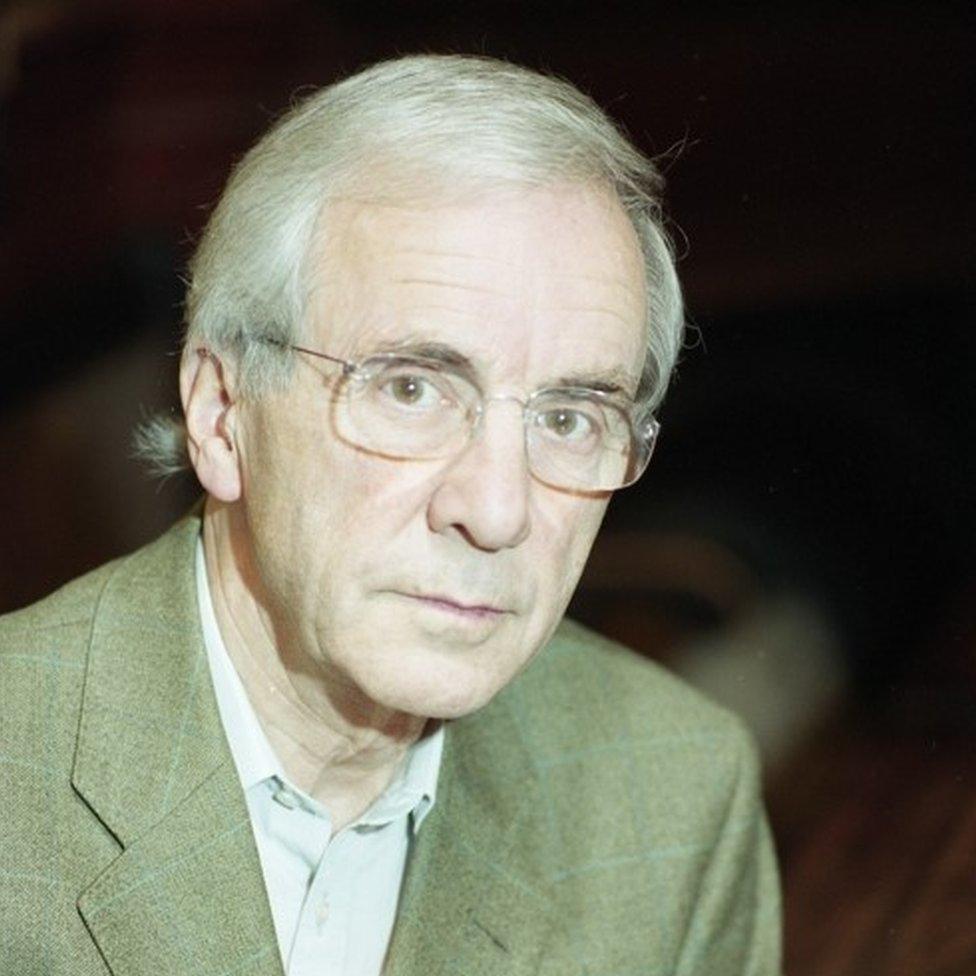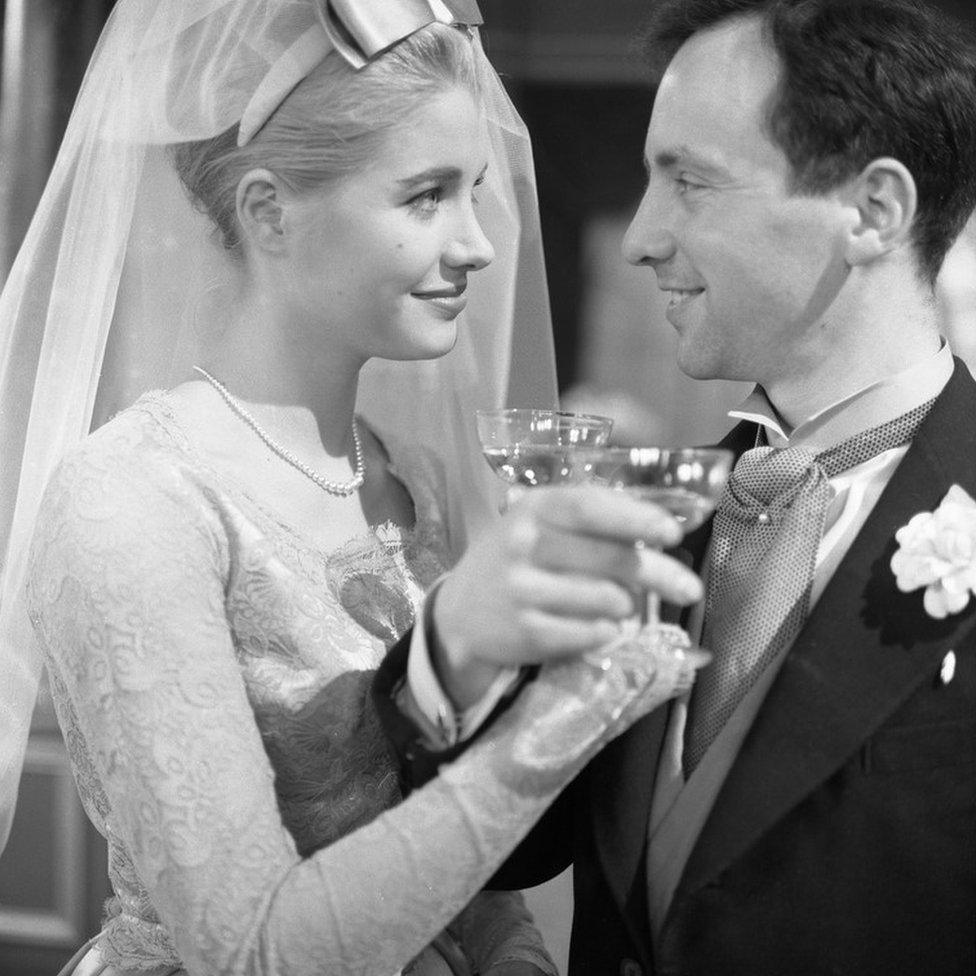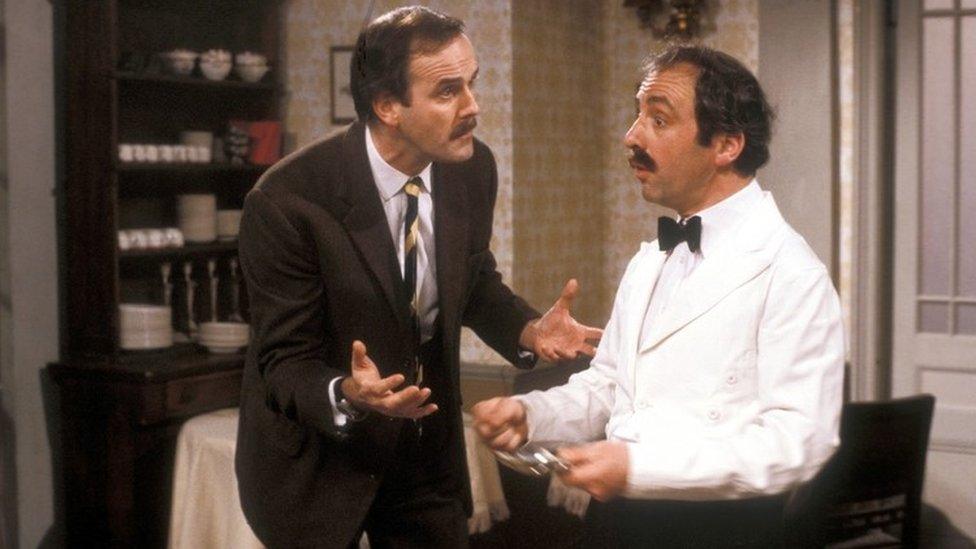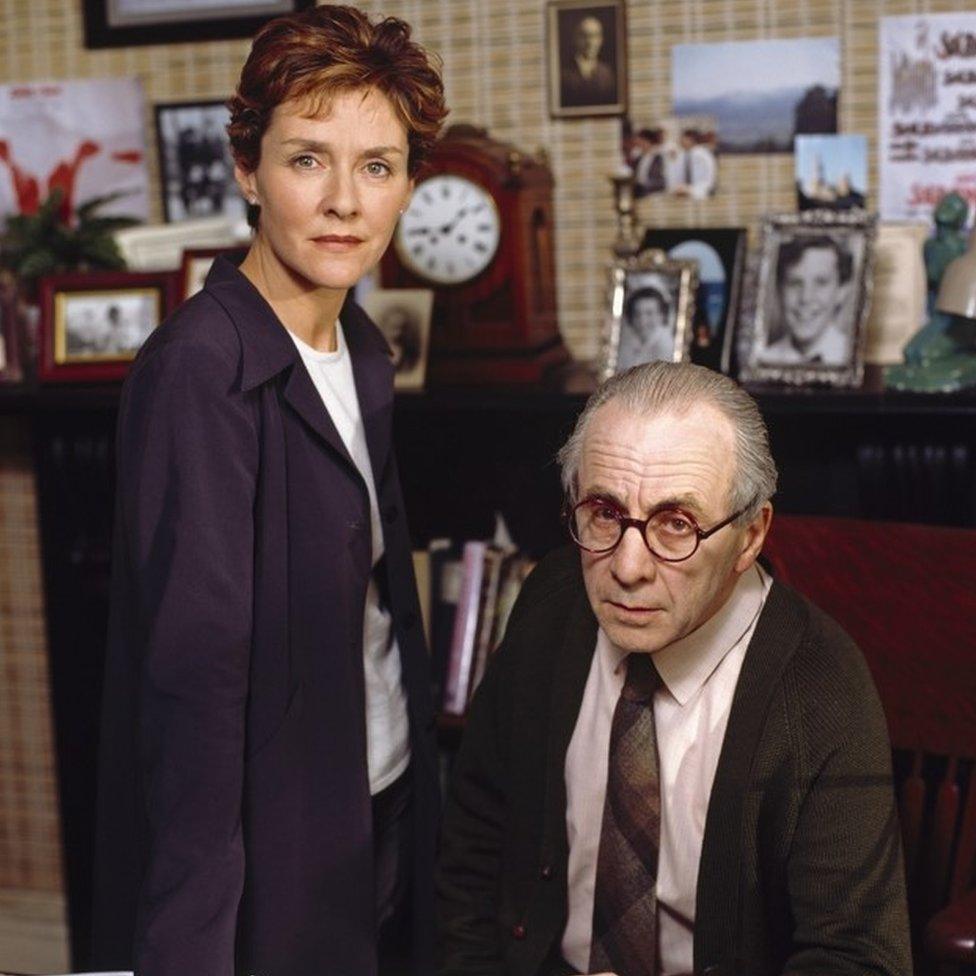Obituary: Andrew Sachs, Fawlty Towers' Manuel
- Published

The long and varied career of Andrew Sachs was defined by the TV comedy Fawlty Towers.
His performance as the well-meaning but inept Spanish waiter Manuel was one of the highlights of the series.
In a state of constant confusion, and with a tenuous grasp of English syntax, he was invariably the target of Basil's rages.
But it was just one role in seven decades of acting that spanned comedy, classical and dramatic roles.
He was born Andreas Siegfried Sachs on 7 April 1930 in Berlin. His insurance broker father was Jewish while his mother, who worked as a librarian, was a Catholic of part-Austrian ancestry.
Nazism was already on the rise in Germany. His father was arrested by the authorities in 1938, but later released after intervention by a friend in the police.
The incident was enough to persuade the family to flee Germany, and they moved to London.
They lived in several parts of north London, once acting as caretakers in the house of the noted anthropologist, Bronislaw Malinowski. Sachs later recalled being fascinated, at the age of 10, by piles of images of naked women he came across while exploring the house.

With Julia Lockwood in the 1962 BBC drama The Six Proud Walkers
He was a keen cinema-goer in his teens and auditioned for Rada but only had enough money to complete two terms. He eventually secured an assistant stage manager's job at a theatre in Bexhill, East Sussex.
He endured the gruelling routine of rep, performing a play one week while, at the same time, learning lines and rehearsing for a completely different performance the next. Eventually he secured a job as stage manager at the Liverpool Playhouse.
A move to the Globe theatre in London followed, where he was spotted by the producer Brian Rix, who signed him up to appear in his Whitehall Farces. This gave Sachs more stable employment and a base to map out his future career.
A tenacious individual, he bombarded the BBC with material and requests for auditions. He was eventually hired by the Corporation where he wrote scripts, appeared in a number of radio productions and, occasionally, worked in the BBC German section.
Injuries
His film debut came in the 1959 comedy, The Night They Dropped a Clanger, which also starred Brian Rix and the future first Doctor Who, William Hartnell. He followed this up with a minor part in another Rix film, Nothing Barred.
But despite a steady stream of work his profile remained low. He had a role in a 1962 BBC drama The Six Proud Walkers, and there there were appearances in a number of 1960s TV series, including The Saint.
He appeared in the 1973 film, Hitler: The Last Ten Days, featuring Alec Guinness as the dictator shut up in his bunker. Sachs didn't miss the irony of a half-Jewish actor playing Walter Wagner, the Nazi lawyer who married Hitler to his mistress Eva Braun shortly before the pair committed suicide.
Sachs encountered John Cleese when both men were working on a series of training films. When Cleese finally managed to persuade the BBC to make Fawlty Towers - Corporation executives were sceptical - Sachs got the part that catapulted him into the public eye.

Basil's confrontations with Manuel often ended in violence
It wasn't an easy role.
He twice suffered injuries, once when Basil attacked him with a metal saucepan - Cleese wanted to use a rubber one but was overruled by the producer - and once during the kitchen fire episode in The Germans.
A chemical on his clothes, designed to emit smoke, proved to be corrosive and ate its way into his skin.
Much of the comedy revolved around Manuel's shaky grasp of English - "I learn eet from a book" -which made him incapable of understanding the simplest instructions.
Cleese's break-up with his wife Connie Booth, who co-wrote the scripts, meant that only 12 episodes of Fawlty Towers were made over two series. They have become comedy classics and are regularly repeated four decades after they first appeared.
In 1978 Sachs, inspired by a meeting with the playwright Tom Stoppard, wrote an experimental drama in which all the action was conveyed by sound effects rather than dialogue.
It first aired on BBC Radio 3 with Sachs in the leading role. It puzzled many critics, one of whom opined that it stood for "all that was wrong in contemporary radio drama".
Obscene
Although there were further TV appearances, notably as the title character in the BBC adaptation of HG Wells's History of Mr Polly, Andrew Sachs's distinctive voice made him a natural for radio.
He played Father Brown in a Radio 4 adaptation of GK Chesterton's detective priest stories, as well as radio versions of Sherlock Holmes and PG Wodehouse's The Code of the Woosters.
He was also much in demand for narration, notably all five series of the The Troubleshooter for BBC television, which featured John Harvey-Jones as the businessman aiding struggling companies.

Silent Witness was one of many TV dramas in which he appeared
Sachs' voice has also appeared on a number of audio books, including some Thomas the Tank Engine stories.
In October 2008, Sachs discovered obscene messages on his phone from the presenter Jonathan Ross and the comedian Russell Brand. The messages referred to Sachs's granddaughter, with whom Brand claimed he'd had a relationship.
It came at a difficult time for Sachs, whose wife had just been taken to hospital with a broken hip. When the Mail on Sunday published the story there was an avalanche of complaints which led to the suspension of Ross and Brand and the resignation of the controller of Radio 2, Lesley Douglas.
The BBC later issued an unreserved apology to Sachs and his family.
In 2009 Sachs made his debut on the ITV soap, Coronation Street, as Ramsay Clegg. At the time he revealed that his wife Melody was such a fan the family had been watching it since 1962.
He continued to work on TV and radio well into his eighties. "Oh yes, I just like it," he said. "And because I've done quite well in the business, I don't want to give it up."